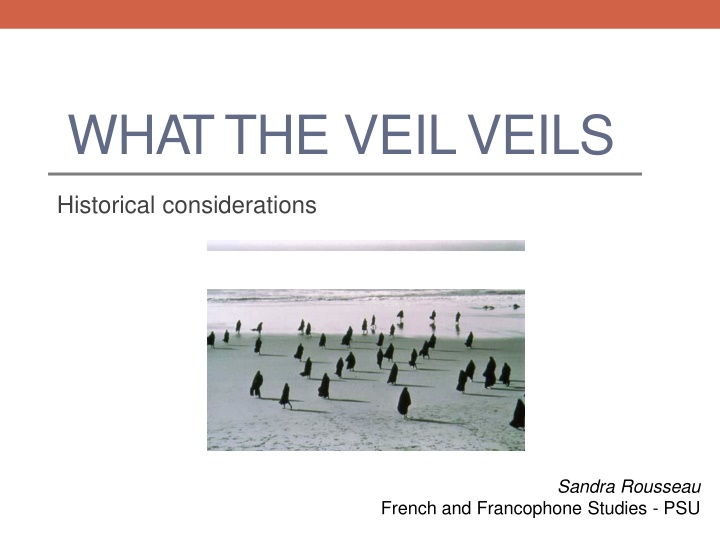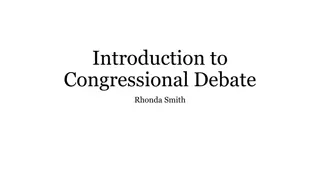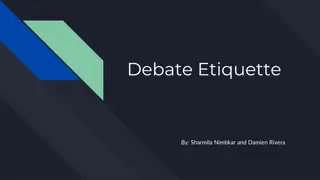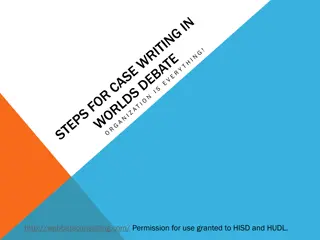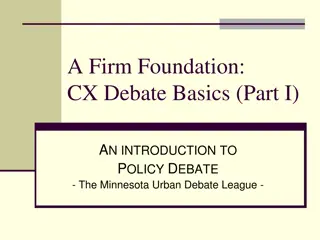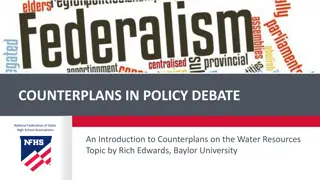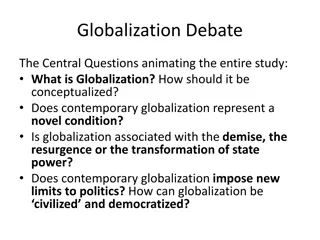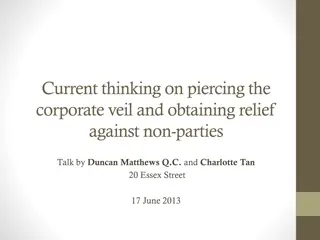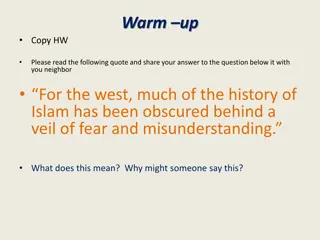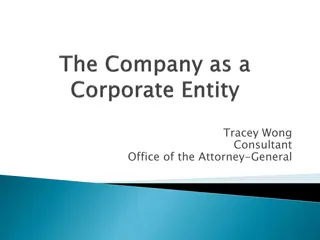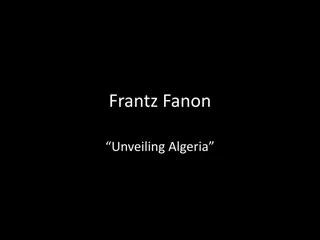Exploring the Veil Debate in France: Historical Perspectives
Delve into the intricate historical considerations surrounding the veil debate in France, analyzing its political, social, and cultural dimensions. Explore the evolution of terminology, significant laws, the impact on the school system, France's historical relationship with religion, and the processes of secularization and de-Christianization. Uncover how these factors have shaped the ongoing discourse on veiling practices.
Download Presentation

Please find below an Image/Link to download the presentation.
The content on the website is provided AS IS for your information and personal use only. It may not be sold, licensed, or shared on other websites without obtaining consent from the author.If you encounter any issues during the download, it is possible that the publisher has removed the file from their server.
You are allowed to download the files provided on this website for personal or commercial use, subject to the condition that they are used lawfully. All files are the property of their respective owners.
The content on the website is provided AS IS for your information and personal use only. It may not be sold, licensed, or shared on other websites without obtaining consent from the author.
E N D
Presentation Transcript
WHATTHE VEILVEILS Historical considerations Sandra Rousseau French and Francophone Studies - PSU
Questions Why a debate? Political Social Cultural issue What exactly is debated? France s right to pass legislation France s cultural / historical arguments La cit Women s rights / Muslim women s rights (?)
Terminology In France the debate emerged as the headscarf affair (l affaire du foulard) It quickly becomes the veil debate . How does terminology change the terms of the debate?
The 2004 law The headscarf law 1985 : The Invasion myth Immigration Right-wing party (FN) 1989: The first Headscarf affair Salman Rushdie Fall of the Berlin wall 2001: September 11. 2004: Law forbidding ostentatious display of religion 2010: Burqa ban in public places
The school system Inherited from the third Republic 1870-1940 Highly centralized Curriculum Highly hierarchical Minist re T eacher s recruitment Les concours 25 acad mies: geographical zones Middle school and High schools Primary schools Universities
France and religion Christianity Religious wars Corrupted / Privileged Clergy Christian traditions Revolution Napoleon Third Republic And colonization The French State
concordat Clovis (5th) Louis XIV - 1685 Napoleon + Restauration 17th + 18th Middle-Ages Ferry Laws - 1882 Henri IV - 1572 1791
Secularization The French Revolution Privileges of the Nobles and the Clergy Impossibility of upward mobility Economic exploitation Philosophers and Politicians: The Enlightenment Liberties Social contract Checks and Balances End of the Monarchy and of the Church as a ruling entity.
De-Christianization The cult of Reason Confiscation of churches and land Trying to change traditions
The Declaration of the Rights of Man and of the Citizen - 1789 Art. 4. - La libert consiste pouvoir faire tout ce qui ne nuit pas autrui : ainsi, l'exercice des droits naturels de chaque homme n'a de bornes que celles qui assurent aux autres Membres de la Soci t la jouissance de ces m mes droits Liberty consists in being able to do anything that does not harm others: thus, exercising the natural rights of every man has no bounds other than those that ensure to other members of society the enjoyment of these same rights. These bounds may be determined only by the Law.
The Declaration of the Rights of Man and of the Citizen - 1789 Art. 10. Nul ne doit tre inqui t pour ses opinions, m me religieuses, pourvu que leur manifestation ne trouble pas l'ordre public tabli par la Loi. No one may be disturbed on account of his opinions, even religious ones, as long as the manifestation of such opinions does not interfere with the established Law and Order.
Universalism The Natural Law Vs. particularisms T o speak of French universalism is and is not an oxymoron: it is to the extent that universalism is defined as the opposite of particularism, ethnic, religious, national, or otherwise. It is not to the extent that French national discourse has for centuries claimed that France is the capital of universalism and, though often challenged, that claim has remained largely secure. (Naomi Schor 2001)
1795 first separation of Church and State French Revolution vs. Catholic religion. French Revolution turns itself into a religion (the revolutionary cults of 1793, accompanied by politico- religious persecution). Separation of Church and State (1795): Article 354. No one can be prevented from following -within the limitations of the Law- the cult they chose. No one can be forced to finance a cult. The Republic does not support any. The Revolution proclaimed secular principles but did not succeed in applying them
The Third Republic and the Ferry Law (1870-1940) The French Empire Colonization Algeria 1830 Civilizing Mission The teacher as priest : Les hussards noirs de la Republique Conversion to French principles
The Ferry Laws - 1882 School is free Schooling is financed by the State through taxes Instruction is compulsory For both sexes Until 13 years of age Schooling in public schools is secular No religious instruction T eachers are representative of the State > civil servants
Reading lacit today Aright-wing reading of la cit : T end to secularize people rather than the state. More lenient towards Catholicism than towards Islam Myth of a conflict free France before Muslim immigration Links the destruction of la cit to immigration ->anti-immigration discourse Sarkozy s party and the new propositions of la cit (2011) Sarkozy s discussion of a France turned towards its catholic roots Very limited understanding of la cit
Reading lacit today Aleft-wing reading of la cit Hard to find in France today, except amongst scholars The State has to be secular, not its citizens. Separate the Law from religious morality (euthanasia) The state should not treat its citizens differently based on their religion
Behind the veil Question of women s rights Ni putes, ni soumises (neither whores, nor submissive) Inferiorization of women? Veil inAlgeria Colonial interpretation And the Burqa?
And the Niqab, and the Burqa? The burqa: should it be considered separately? What about the burqa in schools? And in public places?
Facts & law 1st European country > 04/11/2011 Illegal in France to cover one s face in public Could be subjected to investigation 25,000 / jail for people forcing Est. 2,000 women (65 M)
The ban on the burqa Feminist and human rights arguments Symbolize women s submission and segregation? Not a free choice? Social /cultural pressure? Against the dignity of a person? La cit arguments (1905 Church/State) Mark of Muslim culture in secular space? Behave like all other civil servants, no religion showing? Security argument Not being able to identify people? Disrespectful argument Undermines basic standards required for living in a shared society?
